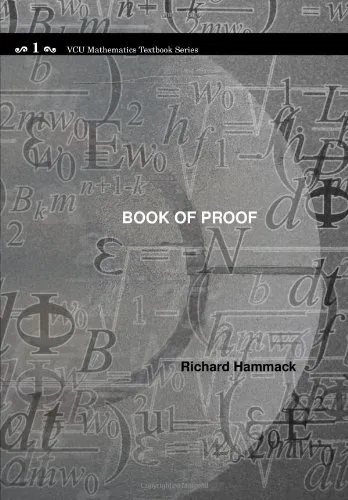Naming and Necessity
4.5
بر اساس نظر کاربران

شما میتونید سوالاتتون در باره کتاب رو از هوش مصنوعیش بعد از ورود بپرسید
هر دانلود یا پرسش از هوش مصنوعی 2 امتیاز لازم دارد، برای بدست آوردن امتیاز رایگان، به صفحه ی راهنمای امتیازات سر بزنید و یک سری کار ارزشمند انجام بدینکتاب های مرتبط:
معرفی کتاب 'Naming and Necessity'
کتاب 'Naming and Necessity' نوشته سال عمانوئیل کریپکی، یکی از مهمترین آثار در فلسفه زبان و متافیزیک است که به بررسی نحوه ارجاع و شرایط لازم و ضروری در نامگذاری میپردازد. این کتاب پایهای محکم برای فهم رابطه بین زبان و دنیای واقعی فراهم میکند.
خلاصهای از کتاب
کتاب 'Naming and Necessity' ابتدا به عنوان سه سخنرانی در هاروارد ارائه شد و بعدها به صورت کتاب منتشر گردید. کریپکی در این کتاب به چالشهای نظریههای سنتی مرجعگذاری میپردازد و دیدگاهی جدید و بدیع ارائه میدهد. او مفهوم "rigid designators" را معرفی میکند که به زبان ساده به کلماتی اطلاق میشود که در تمامی جهانهای ممکن به همان شیء ارجاع میدهند. به علاوه، کریپکی به تفصیل در خصوص تمایز بین اسمهای خاص و توصیفات، و همچنین ویژگیهای «a priori» و «a posteriori» و شرایط ممکن و ضروری بحث میکند.
نکات کلیدی
- مفهوم «مرجع قطعی» یا "rigid designator" و اهمیت آن در زبانشناسی و فلسفه.
- تمایز بین «ضرورت» و «تصادفی» و توضیح چگونگی ارتباط آنها با اشیاء و مفاهیم.
- نقد نظریههای توصیفات مرجعگرایانه که پیش از این توسط فیلسوفان مثل راسل و فرگه ارائه شده بودند.
- توضیح اینکه چگونه میتوان از طریق اسمهای خاص به معنای واقعی اشیاء دست یافت، بدون نیاز به توصیفات اضافی.
نقلقولهای معروف از کتاب
“If a designator is rigid, it designates the same object in all possible worlds in which the object exists and never designates anything else.”
“Names are not synonymous with descriptions, however many such descriptions we may have of them.”
اهمیت کتاب
'Naming and Necessity' تأثیر عمیقی بر فلسفه مدرن داشته است. این کتاب در تغییر نحوه درک ما از زبان و واقعیت نقش اساسی داشته و به عنوان یکی از آثار کلاسیک در این حوزه شناخته میشود. کار کریپکی در این کتاب باعث شد تا محققان و دانشمندان زیادی در زمینههای فلسفه زبان و تحلیل متافیزیکی به عمق بیشتری در موضوعات مشابه بپردازند. یکی از دلایلی که این کتاب مهم است، این است که دیدگاههایی را به چالش میکشد که تا پیش از آن بیرقیب بودند و رویکردهای جدیدی را در فهم و تفسیر زبان مطرح میکند.
Naming and Necessity is a seminal work in the philosophy of language and logic by Saul Kripke. Initially presented as a series of lectures, this book challenges conventional notions of how language relates to the world, particularly through the concepts of naming, identity, and necessity.
Detailed Summary of the Book
In 'Naming and Necessity,' Saul Kripke presents a powerful argument against the descriptivist theory of names, which suggests that the meaning of a proper name is equivalent to a description associated with it. Kripke introduces the causal theory of reference, arguing that a name’s meaning is linked to the initial baptism of an object and its subsequent use within a community. Through this framework, Kripke distinguishes between 'a priori' and 'a posteriori' knowledge versus 'necessary' and 'contingent' truths, reshaping philosophical discourse.
The book further delves into the nature of identity, stating that objects have their properties essential to them independent of human knowledge. Kripke’s introduction of 'rigid designators'—terms that refer to the same object in all possible worlds in which it exists—provides a novel way of understanding reference and modality. He challenges the philosophy of necessity and possibility, arguing that some truths are necessary even if known a posteriori. This revolutionary stance contrasts the traditional views of philosophers like Frege and Russell.
Key Takeaways
- Kripke challenges descriptivist theories of naming, proposing that names have their meaning via causal links.
- He introduces the concept of rigid designators and distinguishes them from accidental descriptions.
- The distinction between a priori/a posteriori knowledge and necessity/contingency is clarified in unique ways.
- Kripke’s theories lay the groundwork for new developments in metaphysics and epistemology.
Famous Quotes from the Book
"A proper name is not a description. It rigidly designates the same object in every possible world."
"The proof that necessity is not a relative concept is its drastic simplification of modal logic."
Why This Book Matters
Saul Kripke’s 'Naming and Necessity' has had an enduring impact on both philosophy and linguistics by offering new insights into how language operates within a logical and metaphysical framework. The book is considered a crucial text for understanding contemporary debates around identity, modality, and metaphysics. By overturning prior philosophical conventions, Kripke has set the stage for ongoing discussions about the nature of reality, reference, and human understanding. His ideas continue to influence a wide array of disciplines, making the book essential reading for those interested in the profound questions of how we connect words with the world.
دانلود رایگان مستقیم
شما میتونید سوالاتتون در باره کتاب رو از هوش مصنوعیش بعد از ورود بپرسید
دسترسی به کتابها از طریق پلتفرمهای قانونی و کتابخانههای عمومی نه تنها از حقوق نویسندگان و ناشران حمایت میکند، بلکه به پایداری فرهنگ کتابخوانی نیز کمک میرساند. پیش از دانلود، لحظهای به بررسی این گزینهها فکر کنید.
این کتاب رو در پلتفرم های دیگه ببینید
WorldCat به شما کمک میکنه تا کتاب ها رو در کتابخانه های سراسر دنیا پیدا کنید
امتیازها، نظرات تخصصی و صحبت ها درباره کتاب را در Goodreads ببینید
کتابهای کمیاب یا دست دوم را در AbeBooks پیدا کنید و بخرید


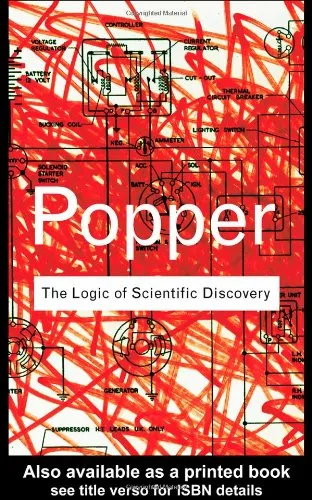
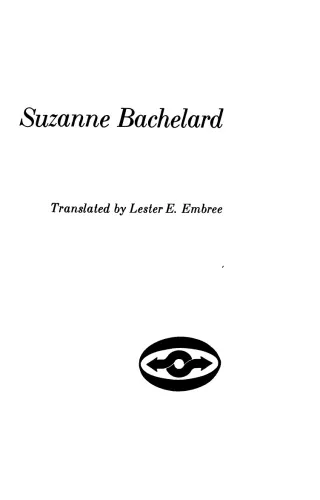
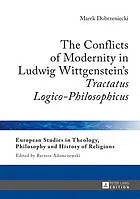



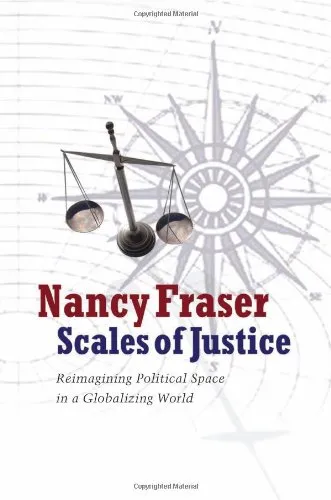


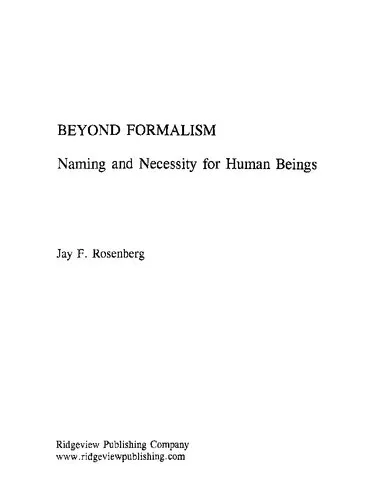
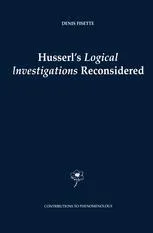
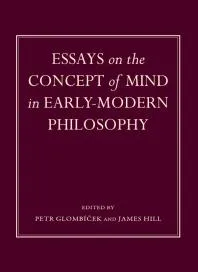

![Modalities for Reasoning about Knowledge and Quantities [PhD Thesis]](https://s3.refhub.ir/images/thumb/Modalities_for_Reasoning_about_Knowledge_and__16051.webp)
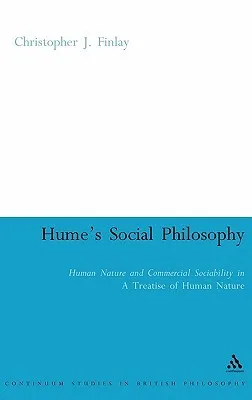









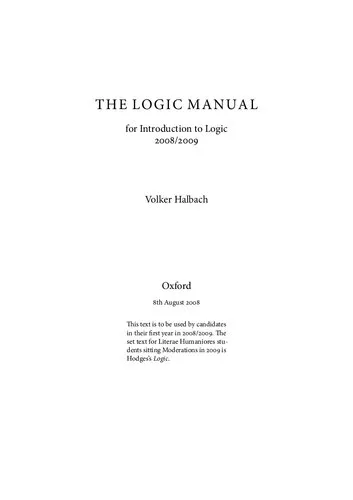


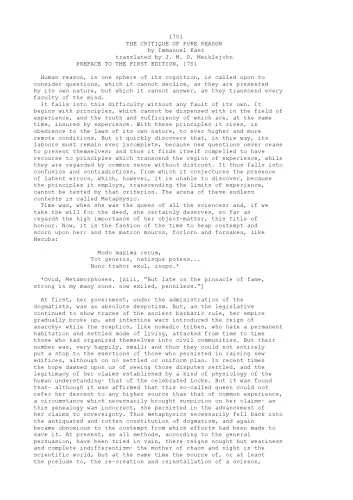
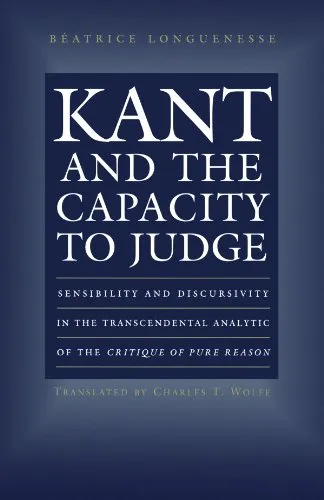


![How to Prove It: A Structured Approach, Third Edition [3rd Ed] (Instructor's Solution Manual, Solutions)](https://s3.refhub.ir/images/thumb/How_to_Prove_It__A_Structured_Approach__Third_35831.webp)
